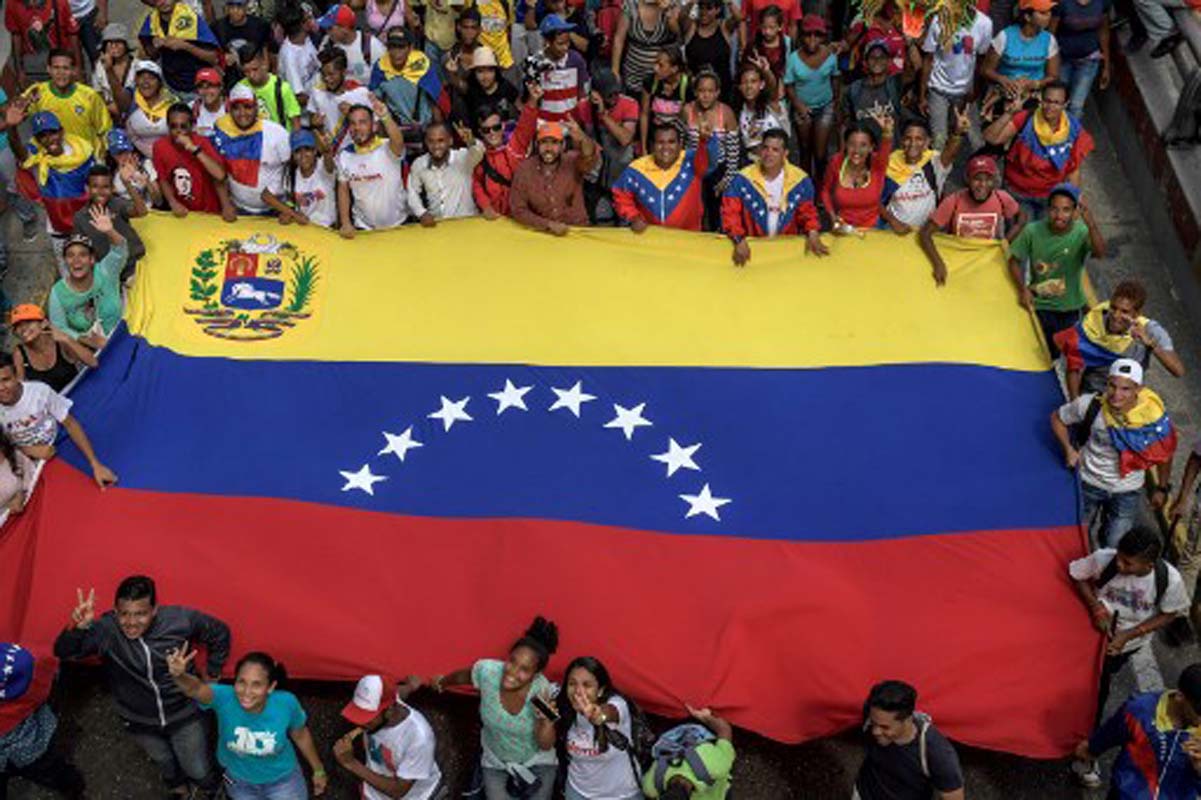
403
Sorry!!
Error! We're sorry, but the page you were looking for doesn't exist.
Venezuela positions troops to border due to regional dispute
(MENAFN) Venezuelan President Nicolas Maduro has reportedly ordered the mobilization of troops to the border with Guyana, escalating tensions in the longstanding territorial dispute over the Essequibo region. According to Spanish daily El Pais, an undisclosed number of Venezuelan troops has been sent to Puerto Barima in the state of Delta Amacuro. This move comes in preparation for the assertion of Venezuela's claim to 160,000 square kilometers of territory known as Essequibo.
Maduro, addressing the nation on Tuesday, unveiled a new map of Venezuela that incorporates the disputed territory, now referred to as 'Guyana Essequiba.' The Venezuelan president justified this action by citing the approval of over 10.4 million Venezuelan voters in a referendum held on Sunday. Maduro expressed the goal of the "peaceful rescue" of Guayana Esequiba, alleging that the area had been de facto occupied by the British Empire and its successors, resulting in environmental destruction.
As part of the territorial maneuver, Maduro appointed Major-General Alexis Rodriguez Cabello as the new governor of the disputed region, with his current seat located in Tumeremo, a mining town in the state of Bolivar. The deployment of troops and the strategic appointment underline Venezuela's assertive stance in the territorial dispute.
In response to Maduro's actions, Guyanese President Irfaan Ali delivered a televised address, condemning Venezuela's move as an attempt to annex over two-thirds of Guyana. President Ali characterized this as a direct threat to Guyana's territorial integrity, sovereignty, and political independence, alleging a violation of fundamental principles of international law. He pledged to "intensify precautionary measures" to safeguard Guyana's territory in the face of escalating tensions.
The territorial dispute dates back to 1899 when the United States assigned the contested territory to the British colony of Guiana, accepting London's arguments under the Monroe Doctrine. Despite the historical decision, Venezuela has consistently refused to recognize its legitimacy. In 2018, Venezuela referred the dispute to the International Court of Justice (ICJ), seeking a resolution through international legal mechanisms.
The recent developments underscore the complex geopolitical dynamics in the South American region and the challenges posed by historical territorial disputes. The actions taken by both Venezuela and Guyana reflect the high stakes involved, with potential implications for regional stability and international relations. The situation adds another layer to the ongoing efforts to address historical grievances and establish a framework for resolving territorial disputes through diplomatic channels.
Maduro, addressing the nation on Tuesday, unveiled a new map of Venezuela that incorporates the disputed territory, now referred to as 'Guyana Essequiba.' The Venezuelan president justified this action by citing the approval of over 10.4 million Venezuelan voters in a referendum held on Sunday. Maduro expressed the goal of the "peaceful rescue" of Guayana Esequiba, alleging that the area had been de facto occupied by the British Empire and its successors, resulting in environmental destruction.
As part of the territorial maneuver, Maduro appointed Major-General Alexis Rodriguez Cabello as the new governor of the disputed region, with his current seat located in Tumeremo, a mining town in the state of Bolivar. The deployment of troops and the strategic appointment underline Venezuela's assertive stance in the territorial dispute.
In response to Maduro's actions, Guyanese President Irfaan Ali delivered a televised address, condemning Venezuela's move as an attempt to annex over two-thirds of Guyana. President Ali characterized this as a direct threat to Guyana's territorial integrity, sovereignty, and political independence, alleging a violation of fundamental principles of international law. He pledged to "intensify precautionary measures" to safeguard Guyana's territory in the face of escalating tensions.
The territorial dispute dates back to 1899 when the United States assigned the contested territory to the British colony of Guiana, accepting London's arguments under the Monroe Doctrine. Despite the historical decision, Venezuela has consistently refused to recognize its legitimacy. In 2018, Venezuela referred the dispute to the International Court of Justice (ICJ), seeking a resolution through international legal mechanisms.
The recent developments underscore the complex geopolitical dynamics in the South American region and the challenges posed by historical territorial disputes. The actions taken by both Venezuela and Guyana reflect the high stakes involved, with potential implications for regional stability and international relations. The situation adds another layer to the ongoing efforts to address historical grievances and establish a framework for resolving territorial disputes through diplomatic channels.

Legal Disclaimer:
MENAFN provides the
information “as is” without warranty of any kind. We do not accept
any responsibility or liability for the accuracy, content, images,
videos, licenses, completeness, legality, or reliability of the information
contained in this article. If you have any complaints or copyright
issues related to this article, kindly contact the provider above.

















Comments
No comment